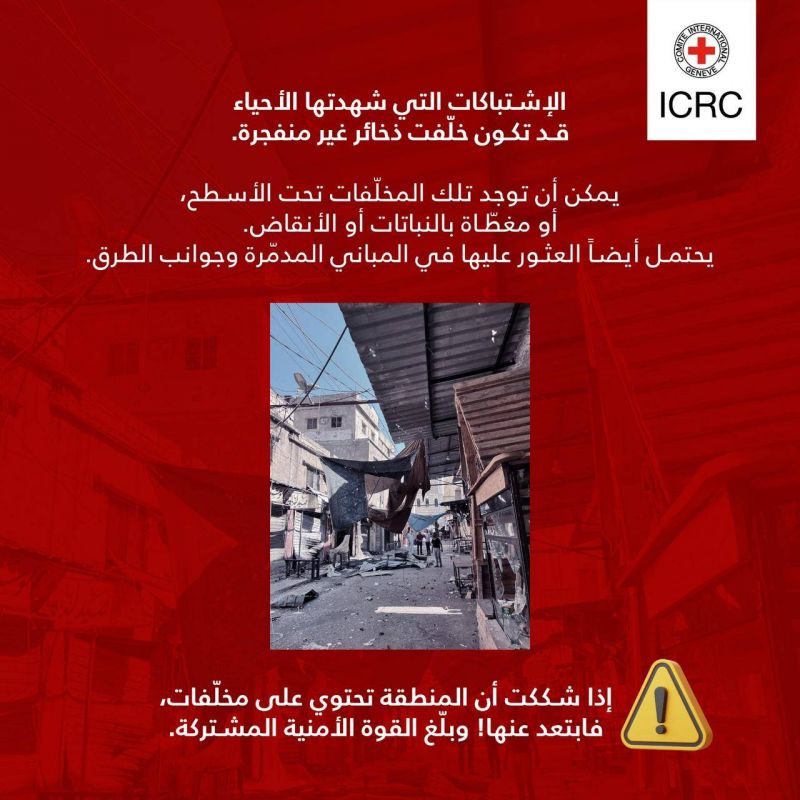
IRCR poster calling on Ain al-HIlweh residents to report 'suspicious' bodies. (Courtesy of Muntasser Abdallah)
BEIRUT — The International Committee of the Red Cross Sunday asked residents of Ain al-Hilweh to report any "suspicious residues" of last week's armed clashes, which might be unexploded munitions.
In a poster, ICRC said that these remains can usually be found within houses, behind plants, or under rubble. "It can also be found inside destroyed buildings or on the side of the road," the poster said.
The Palestinian Committee for Reconciliation — which was formed after the clashes started — issued a statement Sunday after meeting with caretaker Prime Minister Najib Mikati calling on Ain al-Hilweh residents displaced by the clashes to return to their houses now that the fighting has stopped.
The committee also asked UNRWA to see to removing the garbage and cleaning up the rubble on the streets. It also called for the creation of a committee to investigate the cause of the clashes, namely the assassination of Ashraf al-Amooshi, the leader of the Palestinian National Security unit in the Saida region, and several men around him.
The clashes broke out Saturday between gunmen from Islamist factions lodged in al-Safsaf neighborhood and the Fatah Movement, stationed in al-Baraksat neighborhood, near the camp's northern entrance . The violence escalated across the entire camp, with stray bullets hitting buildings in Saida neighborhoods adjacent the camp.
At least 12 people were killed and many more were injured during the clashes.